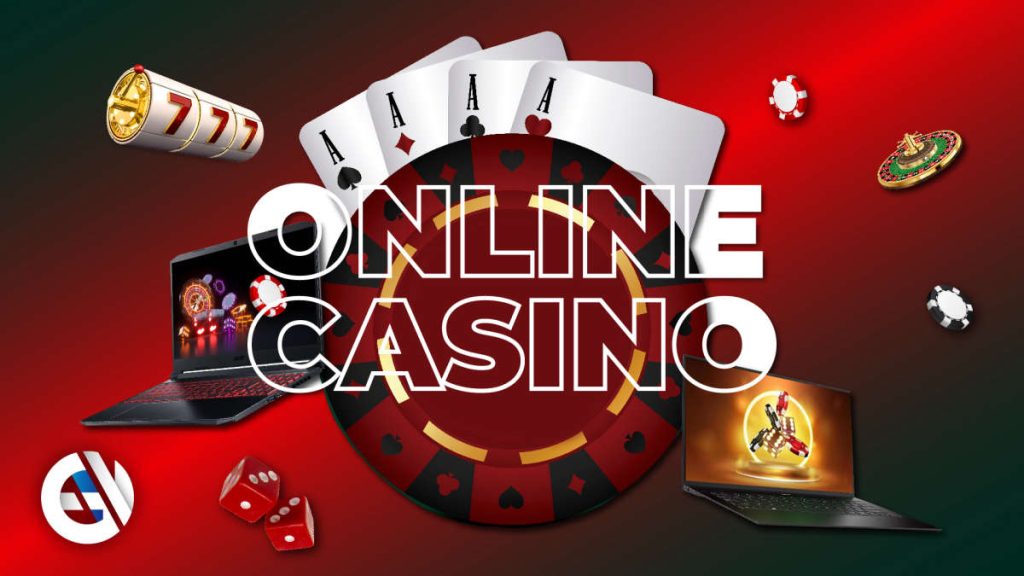It’s More Than a Game Exploring the Depths of Gaming Culture

It’s More Than a Game: Exploring the Depths of Gaming Culture
Gaming has long been a staple of entertainment worldwide, yet it transcends mere leisure or recreation. It’s More Than a Game — It’s a Casino Experience bk33 casino login serves as an example of how gaming can blend with technology and social interaction, merging various aspects of life into a single platform. As we delve into this topic, we will uncover the cultural significance, social impact, and the communities that are forged through the act of gaming.
The Evolution of Gaming: From Simple Beginnings to Cultural Phenomenon
The history of gaming is rich and varied, stretching back more than half a century. From the pixelated screens of early arcade games to the immersive worlds of modern virtual reality, gaming has evolved into a multifaceted industry that encompasses a range of genres and gaming platforms. Originally perceived as a niche hobby, gaming has now entered the mainstream, with billions of people worldwide participating in various forms, including video games, mobile gaming, and even online casinos.
The development of gaming technology has been one of the key drivers of this change. In the beginning, games were simple, often featuring basic graphics and straightforward mechanics. However, as technology progressed, game developers were able to create intricate storylines, complex characters, and expansive worlds. Today, many games offer realistic graphics and physics, creating an experience that can mirror reality in astounding ways.
The Community Aspect: More Than Just Isolation
One of the most remarkable aspects of gaming is its ability to foster communities. Contrary to the stereotype of the solitary gamer, many individuals find connections and friendships within the gaming landscape. Online multiplayer games allow players to team up, collaborate, and compete with others from around the globe. Statistics show that millions engage in gaming communities on platforms like Twitch, Discord, and various forums, where they share experiences, strategies, and even life stories.
In essence, gaming communities provide a sense of belonging. Players can identify with others who share similar interests, backgrounds, and challenges. For some, these virtual communities offer a respite from real-world issues, creating a safe space to express themselves and find support amidst the anonymity of the internet.
Gaming and Social Interaction: Bridging Differences
The power of gaming extends beyond personal entertainment; it can also act as a bridge across cultures, languages, and age groups. Games like “Fortnite,” “League of Legends,” and “Call of Duty” attract millions of players, cutting across demographic barriers. This universality fosters an environment where players can collaborate and communicate, helping to dissolve prejudices and promoting inclusivity.
Additionally, many games incorporate elements of storytelling and character development that resonate with players. This storytelling aspect often reflects real-world issues, encouraging empathy and understanding. Players may find themselves walking in the shoes of diverse characters, gaining insights into experiences different from their own.
The Therapeutic Benefits of Gaming
Beyond entertainment and community, gaming has been shown to provide therapeutic benefits. Many studies suggest that gaming can boost mental health, improve cognitive functions, and even assist in recovery from trauma. For instance, games that require strategic thinking can enhance problem-solving skills, while others can aid in developing hand-eye coordination.

Moreover, therapeutic games are increasingly being utilized in clinical settings to help individuals deal with anxiety, depression, and other mental health issues. This innovative approach harnesses the engaging aspects of gaming to create a supportive environment for healing and personal growth.
The Impact of Esports and Competitive Gaming
Esports, or competitive gaming, has exploded in popularity over the past few years, further solidifying gaming’s place in the cultural zeitgeist. Professional gamers, once a niche group, are now celebrated like traditional sports athletes, drawing millions of viewers to live-streamed competitions and tournaments worldwide.
The rise of esports has also opened up careers in gaming that extend beyond playing—commentators, analysts, and content creators now find ample opportunities in this burgeoning sector. Universities have even begun offering scholarships for talented gamers, recognizing their potential in this new field.
Gaming as a Form of Art and Storytelling
The perception of gaming as merely a pastime is slowly shifting toward recognizing it as a legitimate art form. Many games possess stunning visual artistry, intricate designs, and compelling narratives that rival those found in literature and film. Titles like “The Last of Us,” “Journey,” and “Shadow of the Colossus” have received critical acclaim, demonstrating that games can evoke emotion and provoke thought in profound ways.
The stories told through games often delve into themes of morality, identity, and human connection, allowing players to explore complex ideas interactively. This blended approach allows for a more immersive experience, as players become emotionally invested in the characters and outcomes.
The Future of Gaming: Trends and Innovations
As we look to the future, the gaming industry continues to evolve at an astonishing pace. Emerging technologies like virtual reality (VR), augmented reality (AR), and artificial intelligence (AI) promise to change the landscape, making the gaming experience even more interactive and engaging. These innovations could lead to new forms of storytelling, gameplay mechanics, and community interactions.
Moreover, the increasing embrace of mobile gaming ensures that gaming will remain accessible to a wider audience. As smartphones become more powerful, the divide between casual and hardcore gaming continues to blur, allowing for more diverse audiences to participate in various experiences.
Conclusion: The Many Faces of Gaming
In conclusion, gaming is indeed more than just a game; it is a cultural phenomenon that shapes and reflects societal values. It fosters communities, provides therapeutic benefits, and serves as a means of artistic expression. As the gaming industry continues to grow, its influence on social interaction, mental health, and community building will only deepen. Therefore, whether you’re a casual player or a dedicated enthusiast, it’s essential to recognize and appreciate the broader implications of the gaming experience.
Ultimately, gaming isn’t just about competition or escapism. It is a powerful medium that connects individuals, offers new worlds to explore, and opens the door to endless possibilities. Embrace it for what it is—a rich tapestry of narratives, interactions, and community that forms a significant part of our global culture.




